Poor Plumbing on Property is one of the most overlooked issues in real estate inspections. Experts agree that Plumbing Is Important in Real Estate because it directly affects safety, hygiene, and building longevity. When buyers notice leaks or dampness, Poor Plumbing on Property immediately raises red flags. This is why Plumbing Is Important in Real Estate for both residential and commercial investments.
Essential considerations when buying or selling real estate include location, architecture, and interiors. However, one hidden factor that greatly affects a property’s worth is its plumbing system. From leaking pipes to blocked drains, defective plumbing will lead to structural damage, health hazards, and high maintenance costs. All of these dissuade prospective buyers or tenants. Let us restate the matter and explore how plumbing defects affect property value and the importance of fixing them at the earliest opportunity.
Why Plumbing Is Important in Real Estate
Plumbing systems ensure homes are operable by supplying clean water, removing waste, and maintaining hygiene standards. Buyers often check out the plumbing systems before they make a decision, since in case of repairs, it can become too expensive to undertake and very disruptive during construction. Even your smallest plumbing disturbances, when unchecked, can serve as a red flag for buyers, as they reflect poorly on how well the property was maintained. With dependable plumbing, a property feels much safer, healthier, and more valuable in the long run.
How Negligent Plumbing Decreases Property Value
Negligent Plumbing Decreases Property Value by causing hidden structural damage and mold growth. Over time, the Consequences of Neglected Plumbing include corroded pipes, water wastage, and unhealthy living conditions. Real estate professionals often warn that Poor Plumbing on Property leads to higher repair costs during resale. These issues clearly show how Negligent Plumbing Decreases Property Value in competitive markets.
- Structural Damage to Property
Leaking pipes, broken fixtures, or seepage that goes unnoticed can cause damage to walls, ceilings, and floors. With such moisture, cracks, stains, and mold begin to develop with time. Such visible damage brings an immediate denial of market appeal, as the buyers are fully aware of how expensive such repairs can be. If structural issues are generated due to plumbing problems, then, in turn, it spells the demise of the investors’ dream house.
- Maintenance and Repair Costs Increase
Such homes with poor plumbing generally require repairs ever so often, such as the replacement of corroded pipes or fixing the same leaks all over again. Continued payments for repair discourage prospective buyers interested in a hassle-free home. Even when the power is at a bargain, the buyers do consider the possible repair looming ahead and say goodbye.
- Health and Safety Risk
Blocked drains, stagnated water, and mold growth resulting from leakage are unhealthy living conditions. Such plumbing can cause respiratory ailments and allergies, allowing bacteria to grow in the atmosphere of the house. Buyers value their family’s safety and will stay away from such risks. Valuation of properties that are not good for health will see a low value in the market.
- Reduced Energy Efficiency
The wrong plumbing options, where leaks are found in hot water systems or fixtures that work inefficiently, effectively puff up an otherwise basic utility bill. More water and energy consumed equals more bills, which upholds the property’s eco-friendliness. This could be a dealbreaker these days, with buyers leaning toward energy efficiency as a selling point. Check out our latest blog post on 10 Common Plumbing Problems in the UAE and How to Prevent Them
- Bad Impression at Inspections
Most buyers have a home inspection done before purchase. Dripping taps, water stains, or slow drainage all cast very bad impressions upon the buyer. Even minor plumbing flaws create doubts about the overall upkeep of the house, and such perceptions can generally lower offers quite a bit, as the buyers tend to assume that even bigger problems exist.
Long-Term Consequences of Neglected Plumbing
Understanding the Consequences of Neglected Plumbing helps owners make informed maintenance decisions. Cracks in walls, foul odors, and low water pressure are common signs of Poor Plumbing on Property. Since Plumbing Is Important in Real Estate, preventive inspections should never be delayed. Ignoring small leaks proves how Negligent Plumbing Decreases Property Value over time.
- Declining Market Value Over Time
Because the plumbing problems are ignored, they get worse and become more expensive to repair. When the damage is spread to the walls, floors, or foundations, the property value drops even more. The home, at some point, becomes difficult to put on the market at an asking price. Neglecting plumbing can mean losing a greater portion of property value.
- Reduced Rental Potential
For Landlords, the poorly functioning plumbing just means dissatisfied tenants who often complain. No tenant wants to deal with leaking, blocked pipes, or water pressure issues. It, in turn, greatly diminishes the rental income and extends the period of vacancy. Due to plumbing issues, the property finds difficulty attracting quality tenants, and hence, its capacity to generate an income decreases.
- Reduced Financing Opportunities
Banks and financial institutions usually want an inspection to be carried out prior to issuing the housing loan. A visibly damaged plumbing system would certainly be considered a risk. Thus, in case of such a view, it becomes very difficult for the buyer to obtain financing, thereby cutting down on their potential number of purchasers. If an easy financing route is penalized out of the property, then the property loses its thrust of advantage in the market.
How to Maintain Property Value via Plumbing
To Maintain Property Value via Plumbing, regular servicing and timely upgrades are essential. Professionals emphasize that Plumbing Is Important in Real Estate when planning renovations. Owners who Maintain Property Value via Plumbing reduce long-term risks and expenses. Failure to act results in the severe Consequences of Neglected Plumbing for occupants and investors.
- Routine Inspections for Plumbing
Routine inspections for plumbing help to detect any leaks, clogs, or pipe corrosion at an early stage. This proactive type of approach keeps minor concerns from dwindling into expensive problems. Buyers feel confident when a property has been maintained regularly. The inspections keep the property’s disposition and stand to promote its value in the long run.
- Replacing Old Fixtures and Pipes
Changing an outdated plumbing system increases efficiency and lessens the likelihood of sudden breakdowns. Newer fixtures promise better water usage and boost the attractiveness of a property. A modern-day buyer would be on the lookout for a house that sustains durability and needs less maintenance. An upgrade, therefore, serves to make a property more marketable.
- Making Sure Drainage Is Adequate
A strong drainage system creates a barrier against waterlogging and dilation of the foundation. Improper drainage would mean severe erosion, would soften the soil, would invite basement flooding, and would start cracking foundations. Dry land means an ample assurance of both the home’s safety and its resale price. Its builders can give assurance to a buyer that the property is structurally sound.
- Investing in Preventive Maintenance
Small fixes such as repairing minor leaks, cleaning gutters, or insulating pipes during the winter save money in the long run. Preventive care shows the buyers that the property has been taken care of all along. Such homes with clear signs of care invite better offers on the market. Always investing in maintenance will cost less than having to pay for major repairs.
Market studies confirm that Poor Plumbing on Property discourages buyers and tenants alike. This reinforces why Plumbing Is Important in Real Estate valuation and negotiation processes. Repeated water damage demonstrates how Negligent Plumbing Decreases Property Value significantly. In many cases, the Consequences of Neglected Plumbing extend beyond plumbing systems to foundations.
Explore More Services: MEP Services in Dubai | HVAC System Maintenance | Electrical Installation Services | GRC Supplier in Dubai
Property managers aim to Maintain Property Value via Plumbing by following strict maintenance schedules. Addressing Poor Plumbing on Property early prevents sudden system failures. Investors recognize that Plumbing Is Important in Real Estate portfolios focused on long-term returns. Without action, Negligent Plumbing Decreases Property Value and increases insurance risks.
The long-term Consequences of Neglected Plumbing include tenant dissatisfaction and legal disputes. Such outcomes are commonly linked to Poor Plumbing on Property in aging buildings. Smart owners Maintain Property Value via Plumbing through modern materials and efficient fixtures. They understand that Plumbing Is Important in Real Estate for sustainability goals.
Regular audits help identify Poor Plumbing on Property before it escalates. Buyers often negotiate prices down due to Poor Plumbing on Property discovered during inspection. Even minor leaks signal Poor Plumbing on Property to experienced investors. Ultimately, avoiding Poor Plumbing on Property protects asset value and long-term reputation.
The Conclusion
Bad plumbing is more than just a nuisance it lowers a property’s value, rentability, and market appeal. Consider the costs and deterring factors for a buyer: structural damages and health hazards. Contact us as Preventive maintenance, timely upgrades, and regular inspections maintain the property value. For any homeowner or landlord, good plumbing is one of the best protections for their real estate investment.


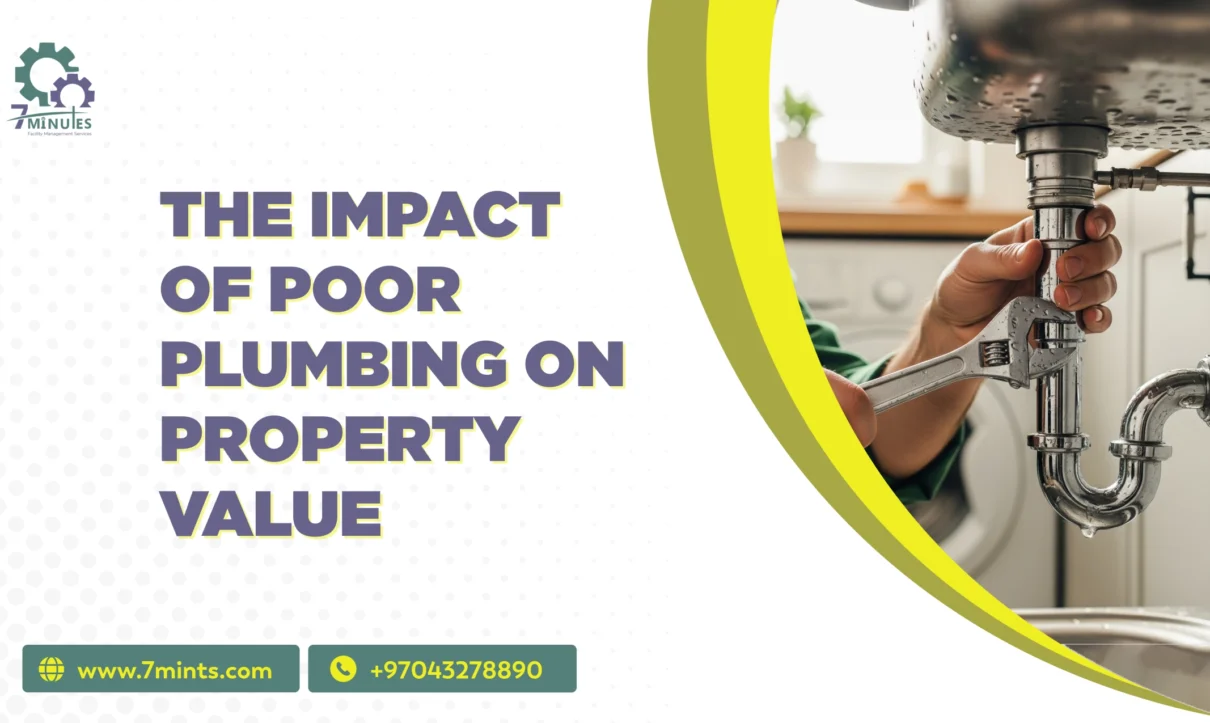


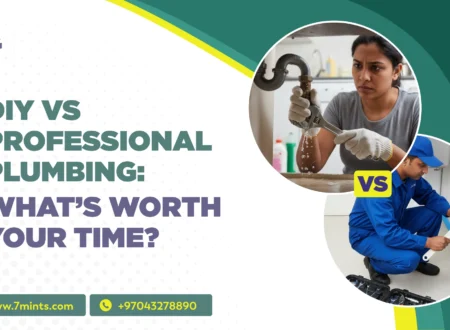
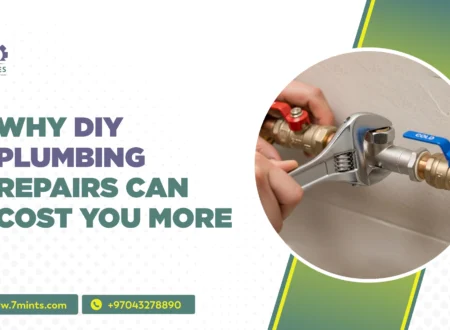
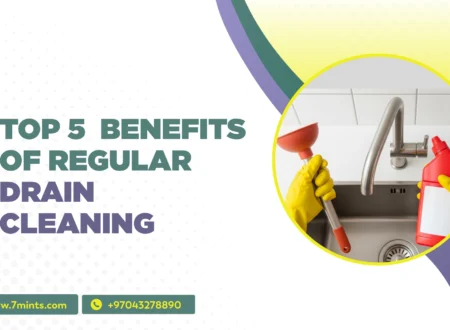
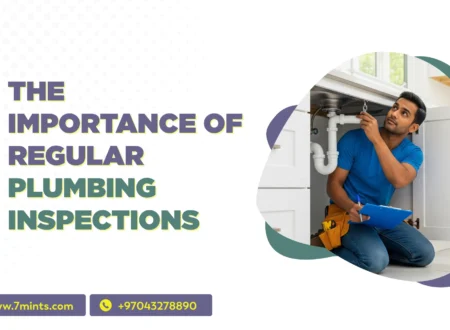

1 Comment
Comments are closed.